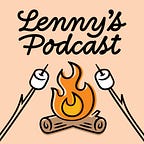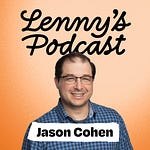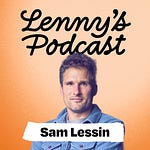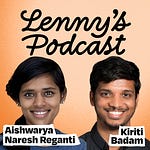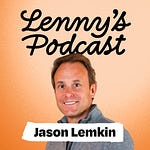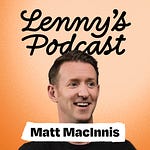Brought to you by:
• Vanta—Automate compliance. Simplify security
• WorkOS—Modern identity platform for B2B SaaS, free up to 1 million MAUs
• Coda—The all-in-one collaborative workspace
—
Tanguy Crusson is the product lead for Jira Product Discovery at Atlassian. In his more than 10 years at the company, he has been instrumental in taking several new products from zero to one, including HipChat, Statuspage, and Jira Product Discovery. In this episode, we dive deep into the struggles of innovating and building new products inside a large company. Tanguy shares candid stories about what worked, what didn’t, and his many hard-won lessons learned about how to successfully build 0 to 1. We cover:
Why large companies with so many advantages still fail at creating new products
Lessons learned from building HipChat
How to avoid common pitfalls like competitive myopia and premature scaling
Lessons learned from the acquisition and integration of Statuspage
Insights from the success of Jira Product Discovery
Tactics for protecting your “ugly babies”
The power of “lighthouse users”
The importance of having a “why now”
Much more
Listen now on Apple, Spotify, and YouTube.
Some takeaways:
“Don’t eat your own bullshit.” When launching new products within companies that have already seen some success, it’s easy to assume that your existing playbooks will work again. But what got you here won’t take you there. You need to define, test, and validate your assumptions, because they may very well be wrong—especially when targeting new customer segments.
Startups benefit from starving. Starving creates hunger, which drives people to solve problems with resourcefulness and urgency. When exploring new products in a big company with excessive resources, you need to create scarcity to emulate this startup starvation. This generally means operating as a small, scrappy, siloed team.
The most likely outcome when launching a new product is failure—even at big companies that appear to have many advantages. It’s important to ground new product launches in this reality so that you can deter the company from over-investing, which ultimately serves to reduce hunger, slow things down, and decrease the chances of success. After all, why invest heavily in something that’s most likely to fail anyway?
Success for new products should be measured differently from existing ones, both in terms of metrics and time horizons. In general, new products should be judged by whether the team is answering the right questions at the right pace and whether the team is still excited about the new bet’s potential. It’s a common mistake to judge new products by metrics that a big company is used to, like MAUs or revenue. However, if a team is optimizing for MAUs or revenue before they’ve worked to understand the problem, they will be working on the wrong things.
Atlassian uses a four-phase approach to launching new products and deciding whether to invest in them further:
Wonder. Proving there is a problem with a big enough market size to justify Atlassian’s investment in the area. It’s also crucial to answer: “Why now?” because big companies like Atlassian have a functionally infinite number of “good” opportunities. There needs to be a strong trigger for actioning any given opportunity at the expense of alternatives.
Explore. Exploring potential solutions and validating them with customers cheaply, whether that be through Figma mockups, customer interviews, or other scrappy approaches.
Make. Making an alpha and then beta version of the solution that customers can start using.
Impact. Showing that the solution can have a material impact on Atlassian’s business.
Articulate the “why now” factor in any proposal or business case. It’s not enough to have a compelling idea or opportunity; you need to clearly demonstrate why action needs to be taken immediately. This could involve highlighting the perishable nature of the opportunity or explaining why delaying action could mean missing out on significant benefits or advantages.
Where to find Tanguy Crusson:
• X: https://x.com/tanguycrusson
• LinkedIn: https://www.linkedin.com/in/tanguy-crusson-99832a
In this episode, we cover:
(00:00) Tanguy’s background
(02:30) Tanguy’s journey at Atlassian
(07:03) The challenges of innovating in large companies
(10:42) Atlassian's high bar for excellence
(12:58) The HipChat story: successes, failures, and lessons learned
(20:47) Lessons learned from building HipChat
(33:49) Statuspage: a journey of perseverance
(39:48) Acquisition challenges and lessons
(47:22) Strategic decisions: build, buy, or partner?
(48:17) Learning to articulate "why now"
(54:08) A quick summary of lessons in this episode
(55:40) The success and pain of launching Jira Product Discovery
(58:10) Incubating new products: the Point A program
(01:00:13) Failure is the most likely outcome
(01:04:15) Atlassian's four-phase approach to launching new products
(01:09:20) Breaking rules without breaking trust
(01:16:16) Early success and team autonomy
(01:17:22) Innovating without disrupting existing customers
(01:23:17) The Lighthouse Users program
(01:30:00) Protecting and nurturing new ideas
(01:36:14) Balancing innovation with personal well-being
(01:38:17) A reminder to look after yourself
(01:42:06) Lightning round
Referenced:
• Atlassian: https://www.atlassian.com/
• HipChat: https://community.atlassian.com/t5/Hipchat/ct-p/hipchat
• Stride: https://community.atlassian.com/t5/Stride/ct-p/stride
• Statuspage: https://www.atlassian.com/software/statuspage
• Opsgenie: https://www.atlassian.com/software/opsgenie
• Jira Product Discovery: https://www.atlassian.com/software/jira/product-discovery
• HipChat billboard: https://x.com/HubSpot/status/654696998126272512
• Announcing our new partnership with Slack: https://www.atlassian.com/blog/announcements/new-atlassian-slack-partnership
• Slack shows it’s worried about Microsoft Teams with a full-page newspaper ad: https://www.theverge.com/2016/11/2/13497766/slack-microsoft-teams-new-york-times-ad
• What Is ‘Dogfooding’?: https://www.nytimes.com/2022/11/14/business/dogfooding.html
• Jira: https://www.atlassian.com/software/jira
• Confluence: https://www.atlassian.com/software/confluence
• PagerDuty: https://www.pagerduty.com/
• New Relic: https://newrelic.com/
• BigPanda: https://www.bigpanda.io/
• Transparent Uptime: http://www.transparentuptime.com/
• Vision, conviction, and hype: How to build 0 to 1 inside a company | Mihika Kapoor (Product at Figma): https://www.lennysnewsletter.com/p/vision-conviction-hype-mihika-kapoor
• Figma: https://www.figma.com/
• Lessons from Atlassian: Launching new products, getting buy-in, and staying ahead of the competition | Megan Cook (head of product, Jira): https://www.lennysnewsletter.com/p/lessons-from-atlassian-launching
• Noah Weiss on LinkedIn: https://www.linkedin.com/in/noahw/
• Tanguy’s LinkedIn post about “lighthouse users”: https://www.linkedin.com/posts/tanguy-crusson-99832a_lighthouse-users-one-of-the-pm-techniques-activity-7176654510801502210-hWNi/
• Pixar Chief: Protect Your ‘Ugly Babies’ (Your Unsightly Ideas): https://www.forbes.com/sites/andyboynton/2014/03/17/pixar-chief-protect-your-ugly-babies-your-unsightly-ideas/
• Atlas: https://www.atlassian.com/software/atlas
• Point A: https://www.atlassian.com/point-a
• Scott Farquhar on LinkedIn: https://www.linkedin.com/in/scottfarquhar
• Who: A Method for Hiring: https://www.amazon.com/Who-Method-Hiring-HC-2008/dp/B004C79SRS/
• Hakim’s Odyssey: Book 1: From Syria to Turkey: https://www.amazon.com/Hakims-Odyssey-Book-Syria-Turkey/dp/1637790007
• Living with the Earth, Volume 1: Permaculture, Ecoculture: Inspired by Nature: https://www.amazon.com/Living-Earth-Gardeners-Permaculture-Ecoculture/dp/1856232603/
• INRIA: https://en.wikipedia.org/wiki/French_Institute_for_Research_in_Computer_Science_and_Automation
• How a Hydrofoil Works: https://web.mit.edu/2.972/www/reports/hydrofoil/hydrofoil.html
• What Is Kitefoil or Foilboarding?: https://www.whenitswindy.com/wp/?page_id=534
• Freediving: https://en.wikipedia.org/wiki/Freediving
• Tanguy’s freediving stats: https://www.aidainternational.org/Athletes/Profile-00000000-0000-0000-0000-000000000a45
• Perplexity: https://www.perplexity.com/
Production and marketing by https://penname.co/. For inquiries about sponsoring the podcast, email [email protected].
Lenny may be an investor in the companies discussed.


